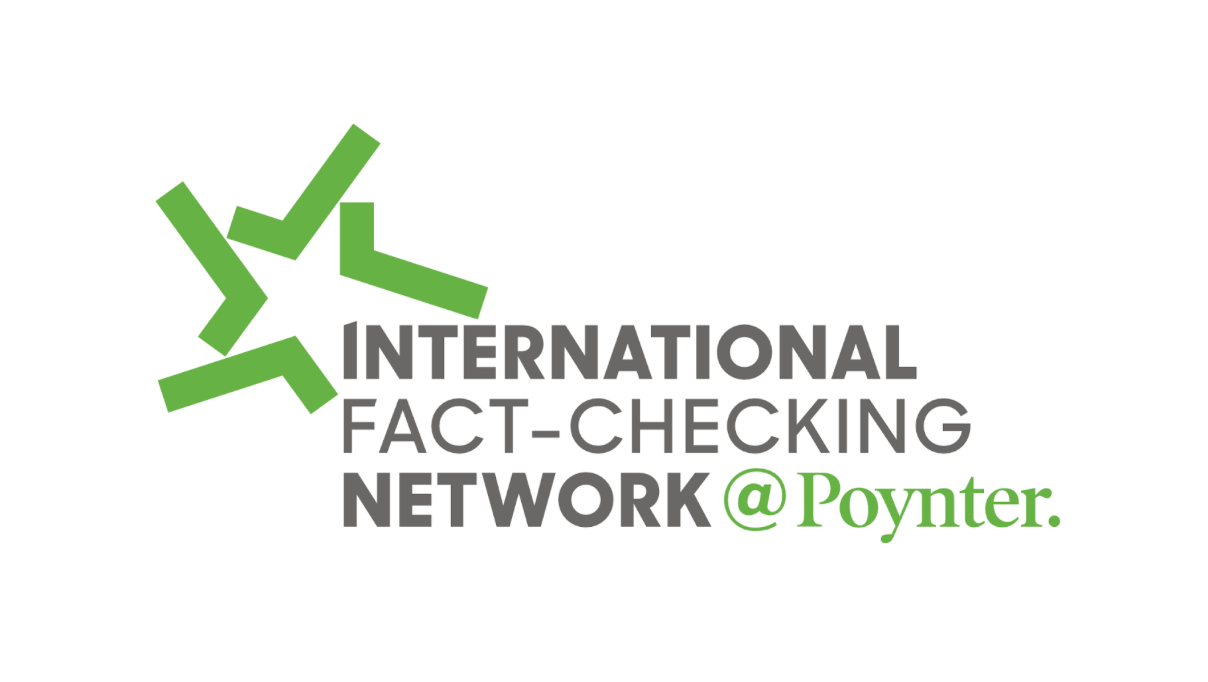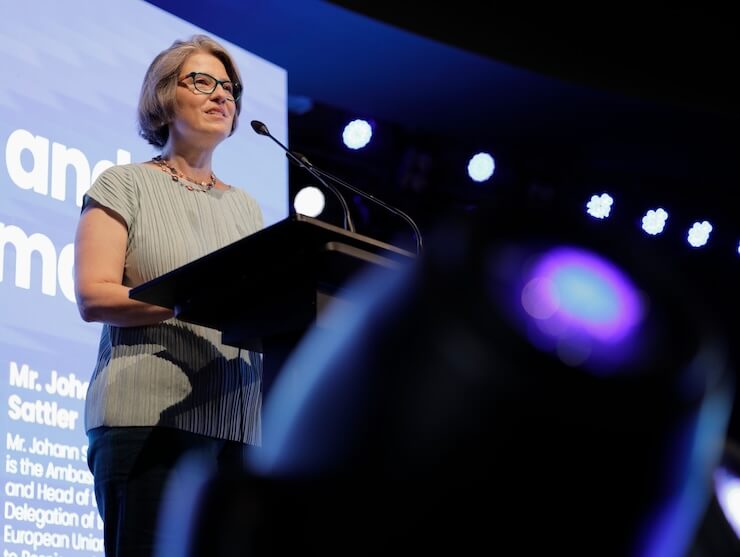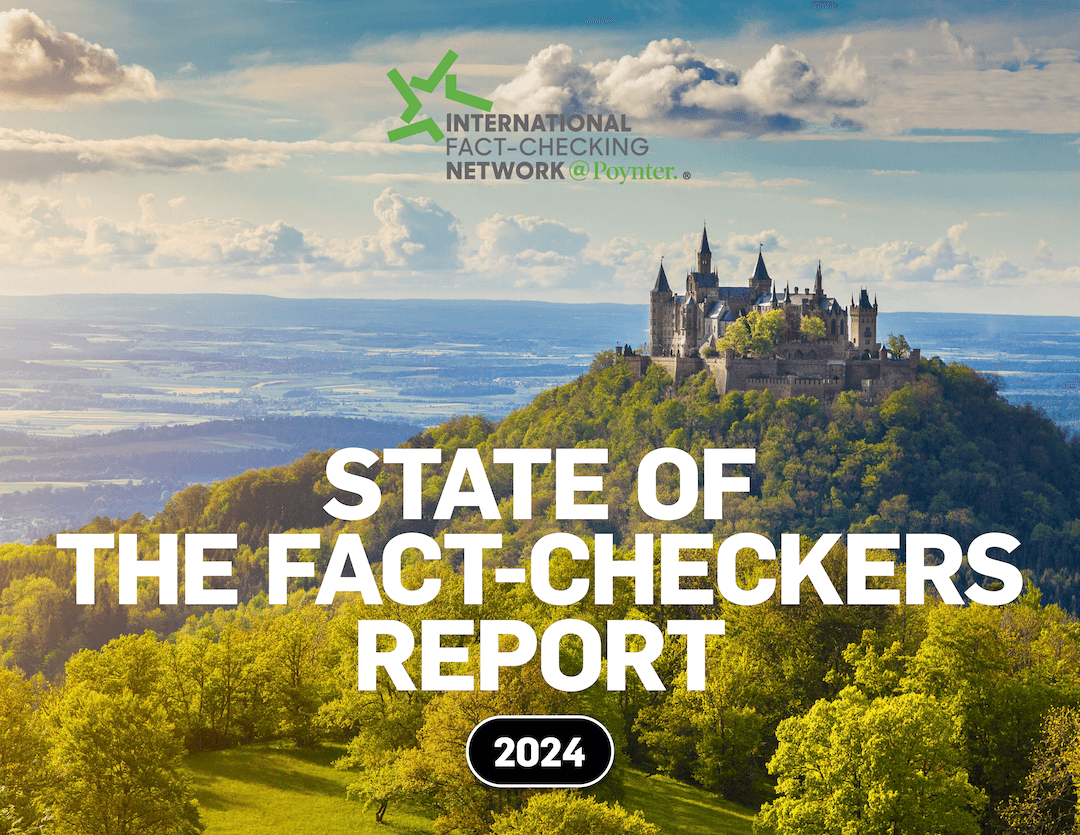The Poynter Institute, in partnership with ACES: The Society for Editing, is proud to announce the release of the final of its three-part editing certifications.
The Poynter ACES Advanced Certificate in Editing is now available, completing the trilogy of trainings available: Introductory, Intermediate and Advanced.
“We’re thrilled to be launching this certificate in a time when clear communication of the written word is more valuable than ever,” said Kristen Hare, Poynter faculty and director of craft and local news. “This certificate is the culmination of years of work in a fantastic partnership between Poynter and ACES, and we are thrilled to offer it to discerning learners in the editing world.”
The certification series launched in 2018, and each of the individual courses and certificates that make up the full menu have been updated and refreshed over the past two years.
“This certificate marks a significant milestone, incorporating short essays and personalized feedback from an assessor to provide participants with deeper, real-time insights into their editing skills,” said Kristin Shoop, the ACES events and professional development manager. “Together with Poynter we’ve constructed a road map of skill progression, innovation and commitment to enriching opportunities for editors in every field interested in sharpening their skills through a well-respected program within the industry.”
The Introductory Certificate ($150) lays the groundwork for editors to learn powerful techniques to help them achieve greater communications clarity; embrace accuracy and verification; and perfect their grammar, word use and style. The six courses and final assessment should take around 15 hours to complete. It includes Language Primer, one of Poynter’s all-time most popular courses, as well as courses such as Getting It Right: Accuracy and Verification in the Digital Age and The Art and Science of Editing.
The Intermediate Certificate ($250) helps communicators delve more deeply into their editing skills by immersing them in courses focused on grammar, law, ethics, technology and verification techniques. The certificate series, which is made up of seven courses and a final assessment, should take about 12 hours to complete. It includes courses such as Working with Writers: How Editors Can Improve Words, Author Relationships and the World and Editing Tools: How to Use Roy Peter Clark’s ‘Writing Tools’ as an Editor.
The Advanced Certificate ($650) completes the trifecta. The six courses, plus a final assessment and essay prompts, empower editors with tools to manage relationships, consider inclusivity, understand and embrace the ethical use of artificial intelligence, and develop entrepreneurial skills. It should take about 11 hours to complete, and includes courses such as Become a Trusted Editor: How to Build Credibility and Strengthen Relationships, AI for Editors: Uses, Drawbacks and Ethics, and Inclusive Editing: How Sensitivity Reads and Thoughtful Queries Can Improve Copy.
Each certificate is designed to be completed independently — there are no prerequisites for any of the certifications. Alternatively, learners can work through the entire three-part suite in order if they wish.
Each course varies in length, though Poynter estimates that most courses within the certificate take about one to two hours each to complete. Completing all three certifications will take a learner more than 30 hours total.
ACES members get a discount on each of the certificates. They can find that discount code on the ACES website inside the membership portal landing page under “member discounts,” then apply it on the checkout page on the Poynter site.
Media Contact
Jennifer Orsi
Vice President, Publishing and Local News Initiatives
Jorsi@poynter.org
About The Poynter Institute
The Poynter Institute is a global nonprofit working to address society’s most pressing issues by teaching journalists and journalism, covering the media and the complexities facing the industry, convening and community building, improving the capacity and sustainability of news organizations and fostering trust and reliability of information. The Institute is a gold standard in journalistic excellence and dedicated to the preservation and advancement of press freedom in democracies worldwide. Through Poynter, journalists, newsrooms, businesses, big tech corporations and citizens convene to find solutions that promote trust and transparency in news and stoke meaningful public discourse. The world’s top journalists and emerging media leaders rely on the Institute to learn new skills, adopt best practices, better serve audiences, scale operations and improve the quality of the universally shared information ecosystem.
The Craig Newmark Center for Ethics and Leadership, the International Fact-Checking Network (IFCN), MediaWise and PolitiFact are all members of the Poynter organization.
Support for Poynter and our entities upholds the integrity of the free press and the U.S. First Amendment and builds public confidence in journalism and media — an essential for healthy democracies. Learn more at poynter.org.
About ACES: The Society for Editing
ACES: The Society for Editing is the nation’s leading organization of editing professionals, educators and students. Founded in 1997 by copy editors, ACES is dedicated to improving the quality of the written word and the working lives of editors. It sets standards of excellence and gives a voice to editors in journalism, government, business, publishing and beyond through top-notch training, networking and career opportunities. ACES hosts an annual in-person conference and, since 2022, an annual virtual conference. ACES Academy hosts monthly webinars. ACES also offers certificates in editing, which it co-hosts with The Poynter Institute, a global leader in journalism. Learn more at aceseditors.org.







